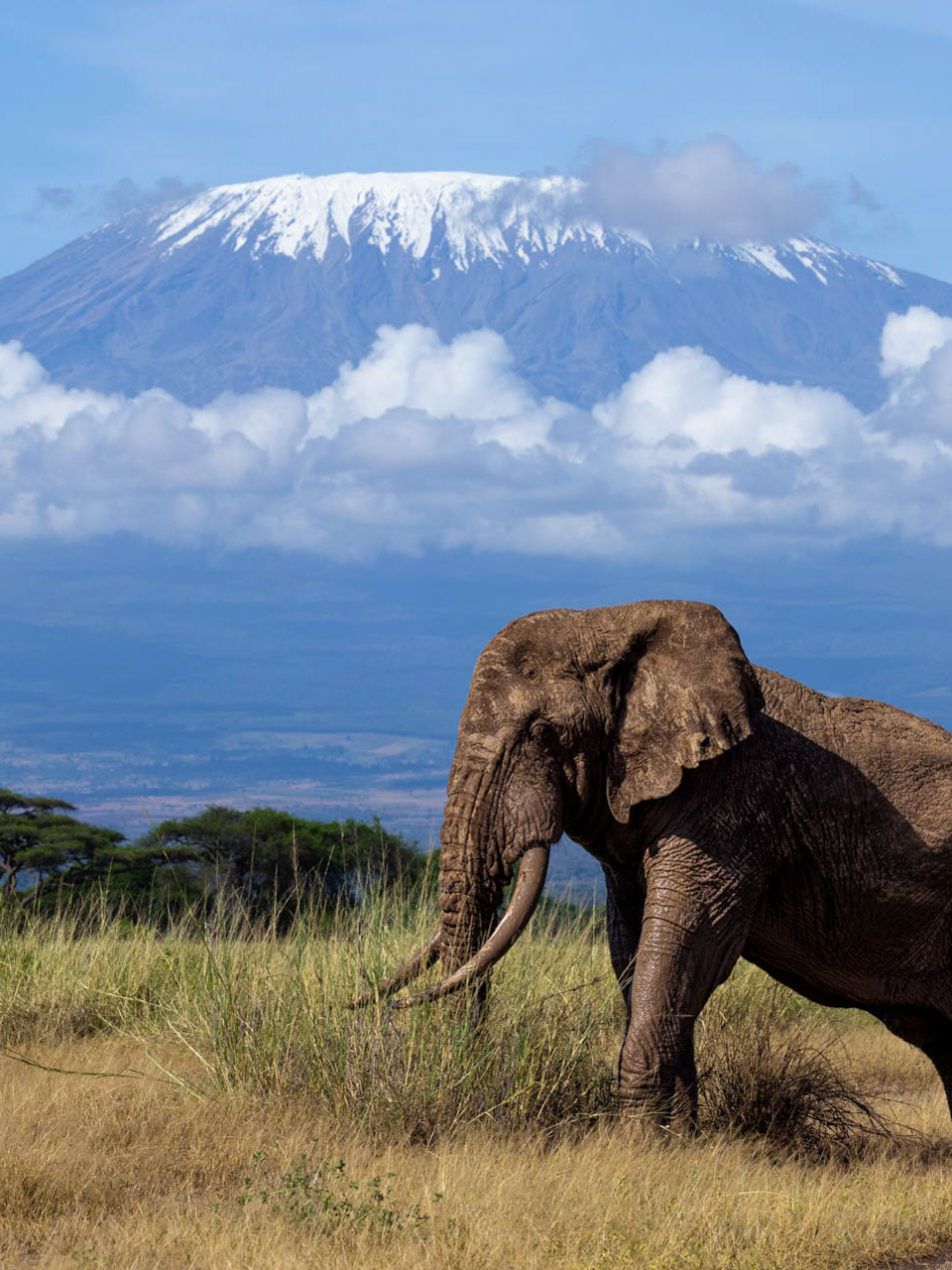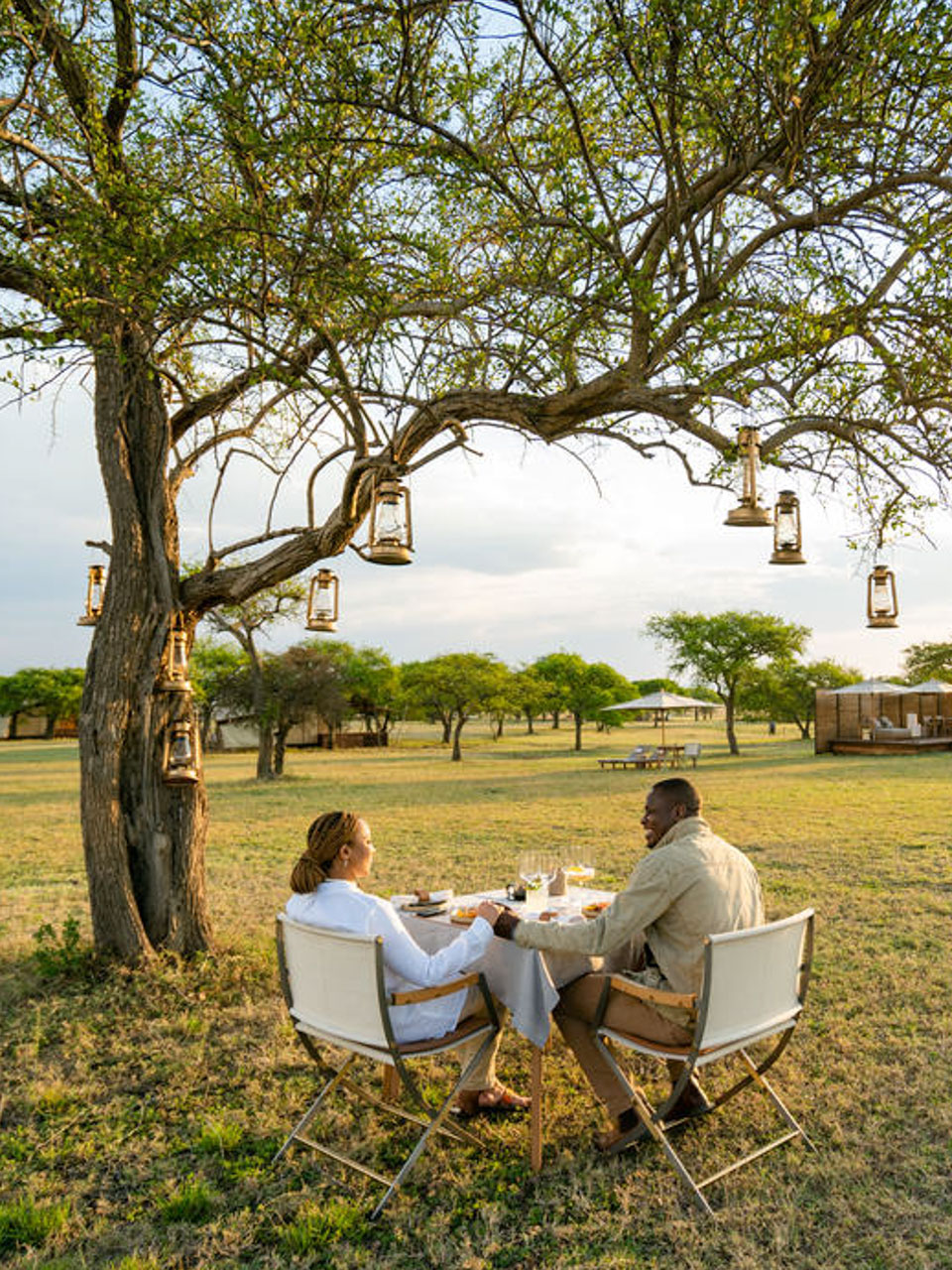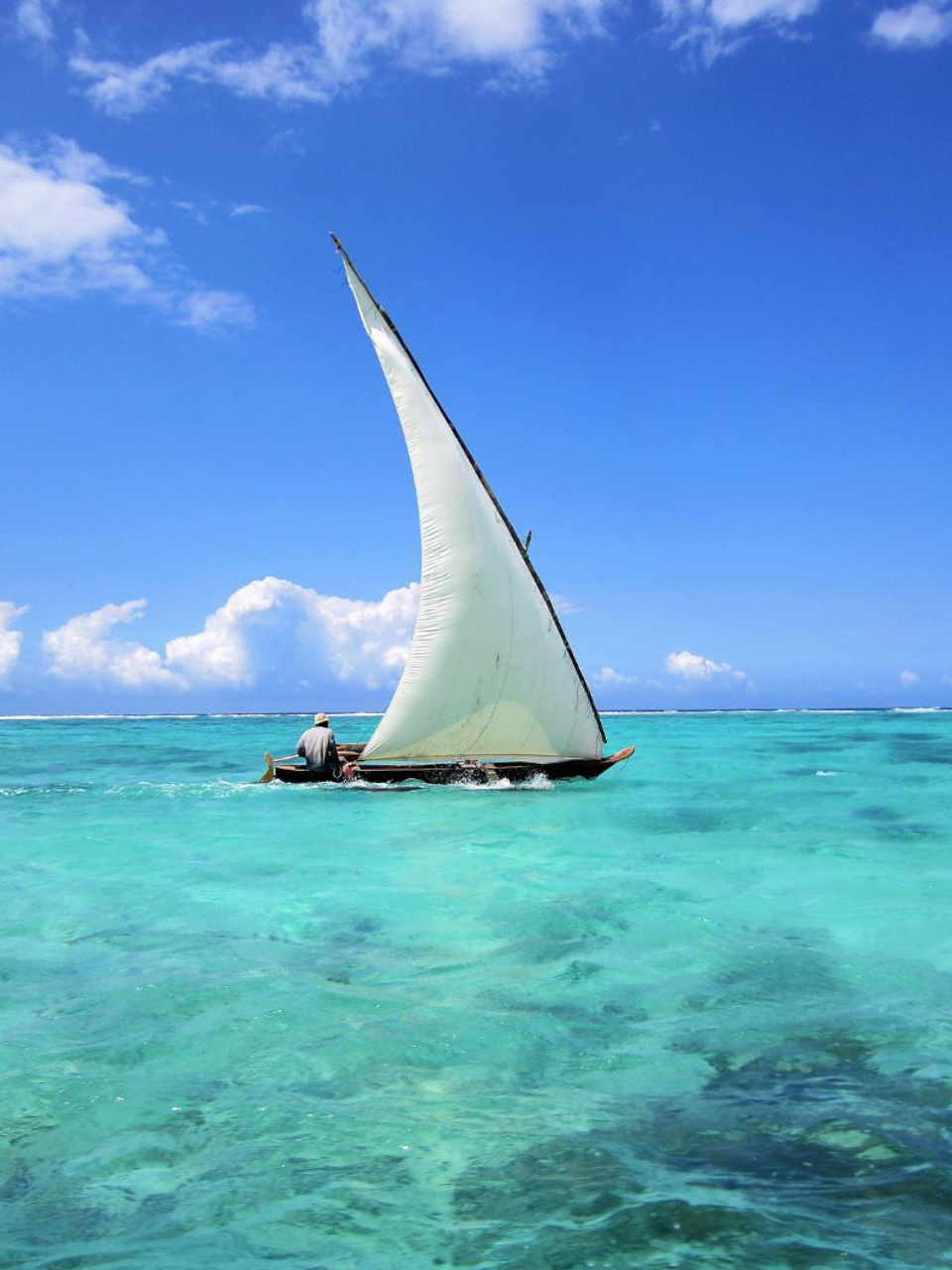Complete your grand African safari by seeing the endangered mountain gorillas of east-central Africa. The gorillas live in two isolated groups — one in the Virunga Volcanoes, spanning three national parks in Uganda, Rwanda, and the Democratic Republic of Congo, and the other in Bwindi Impenetrable Forest, Uganda.
Both Rwanda and Uganda offer exceptional gorilla trekking experiences, each with its own unique charm. For travellers prioritising comfort, we recommend Rwanda with its luxurious lodges and less strenuous climbs. For the adventurer, Uganda is just the place, with slightly wilder treks and lodges filled with character.
What to Expect
Whether in Uganda or Rwanda, your gorilla trekking experience will be the same. It is a wonderful adventure, and being close to the last few mountain gorillas in the world is an experience well worth the effort of getting there. To give you a better idea of what you’re in for, here’s how it goes:
The lodge you’re staying at will drive you to the National Park headquarters with permits that your Angama Travel Planner has already organised
You are then assembled into groups of no more than ten people based on fitness level and assigned a gorilla family
At the end of the previous day, rangers would have noted where the gorilla families have built their nest for the night — this is to be your trek’s rough starting point
If you are assigned a family further away, you will drive to the trailhead closest to the gorillas’ location. Otherwise, you’ll set out from the park headquarters
You’ll want to hire a porter ($20) to carry your bag with water, food, extra layer, etc., not only for your own comfort but to create job opportunities for the nearby communities
Once you have located your gorilla group, you can stay with them for up to an hour, and then it’s time to leave them in peace
As part of your safari, travelling from Kenya to go gorilla trekking can easily form part of your holiday. Rwanda and Entebbe are conveniently accessible by plane from Nairobi’s Jomo Kenyatta International Airport.
Daily flights with international carriers reach Kigali International Airport in about 1,5 hours. From Uganda’s capital, Entebbe, guests can connect to domestic flights to Kisoro or Kihihi airstrips, near Bwindi Impenetrable Forest and Mgahinga Gorilla National Park. Alternatively, enjoy a scenic road trip to experience Uganda’s diverse landscapes.
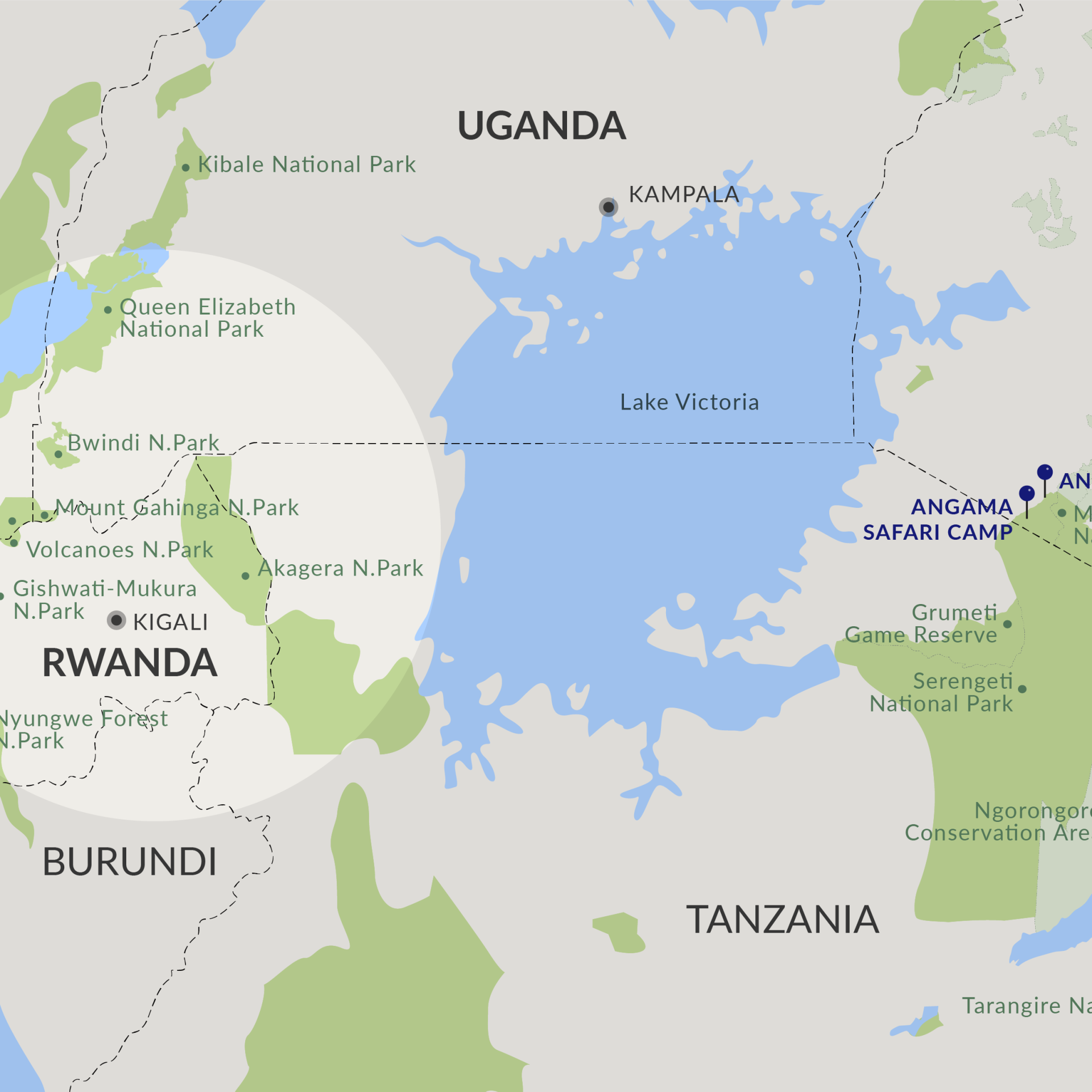
The leading destination for gorilla trekking in Rwanda is Volcanoes National Park, where visitors can set out on guided treks through lush montane forests to observe this iconic and endangered species. Volcanoes National Park holds the highest number of gorillas in the Virunga Massif, a chain of volcanic mountains straddles the borders of Rwanda, Uganda and the Democratic Republic of Congo. Just a short three-hour drive from Rwanda’s capital, Kigali, you will find yourself on the outskirts of the Park and on the doorstep of some spectacular lodges (see below for some of our favourites).
Home to 12 habituated gorilla groups, this Park is a favourite for gorilla trekking. As one of the cornerstones of protecting these endangered primates it’s also home to the late Diane Fossey’s Karisoke Research Center.
Gorillas aren’t the only animals to call the the lush forests home; visitors also have the opportunity to trek and spot golden monkeys, spotted hyenas, buffalo and more, not to mention over 170 bird species.
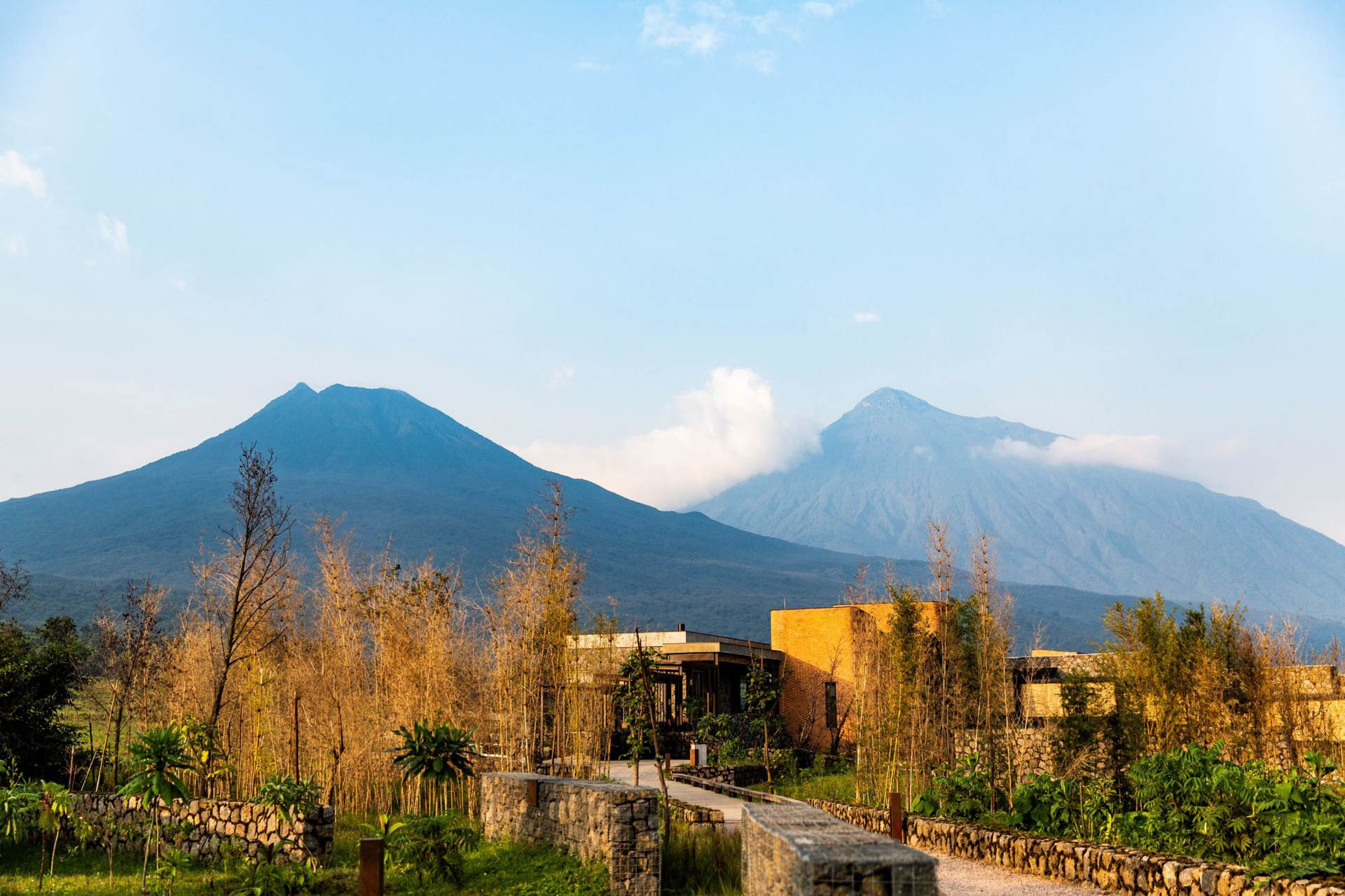
As the largest protected wetland in Central Africa, the Park serves as the last sanctuary for savannah-adapted species in Rwanda. Located in eastern Rwanda, Akagera spans over 1,120 square kilometres and boasts a diverse landscape of savannah plains, wetlands and rolling hills, providing a habitat for a wide array of flora and fauna.
Visitors to the Park can go on game drives, guided walks and boat safaris, where you might spot anything from elephants to lions and leopards. The park is also a birdwatcher’s dream, with over 500 bird species recorded, including the rare shoebill stork.
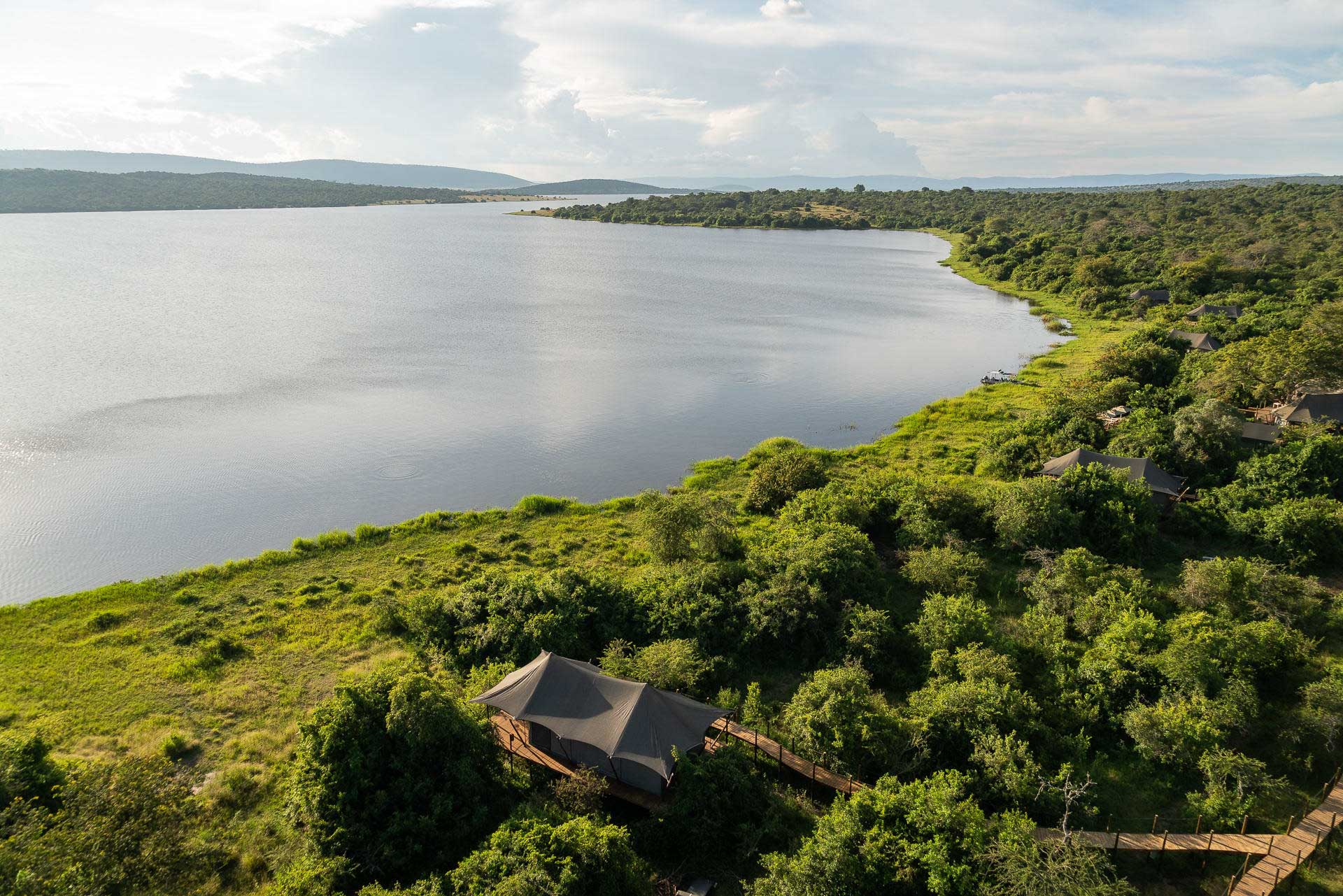
Kigali is known as one of the cleanest and most well-maintained cities in Africa, but that certainly doesn’t mean sterile. This dynamic capital city is a fusion of modernity and tradition with its vibrant streets, bustling markets and colourful shops and galleries reflecting the city’s rich history and resilient spirit.
From the moving Kigali Genocide Memorial to the lively local eateries serving up delicious Rwandan cuisine, every corner of Kigali tells a story and is not to be missed.
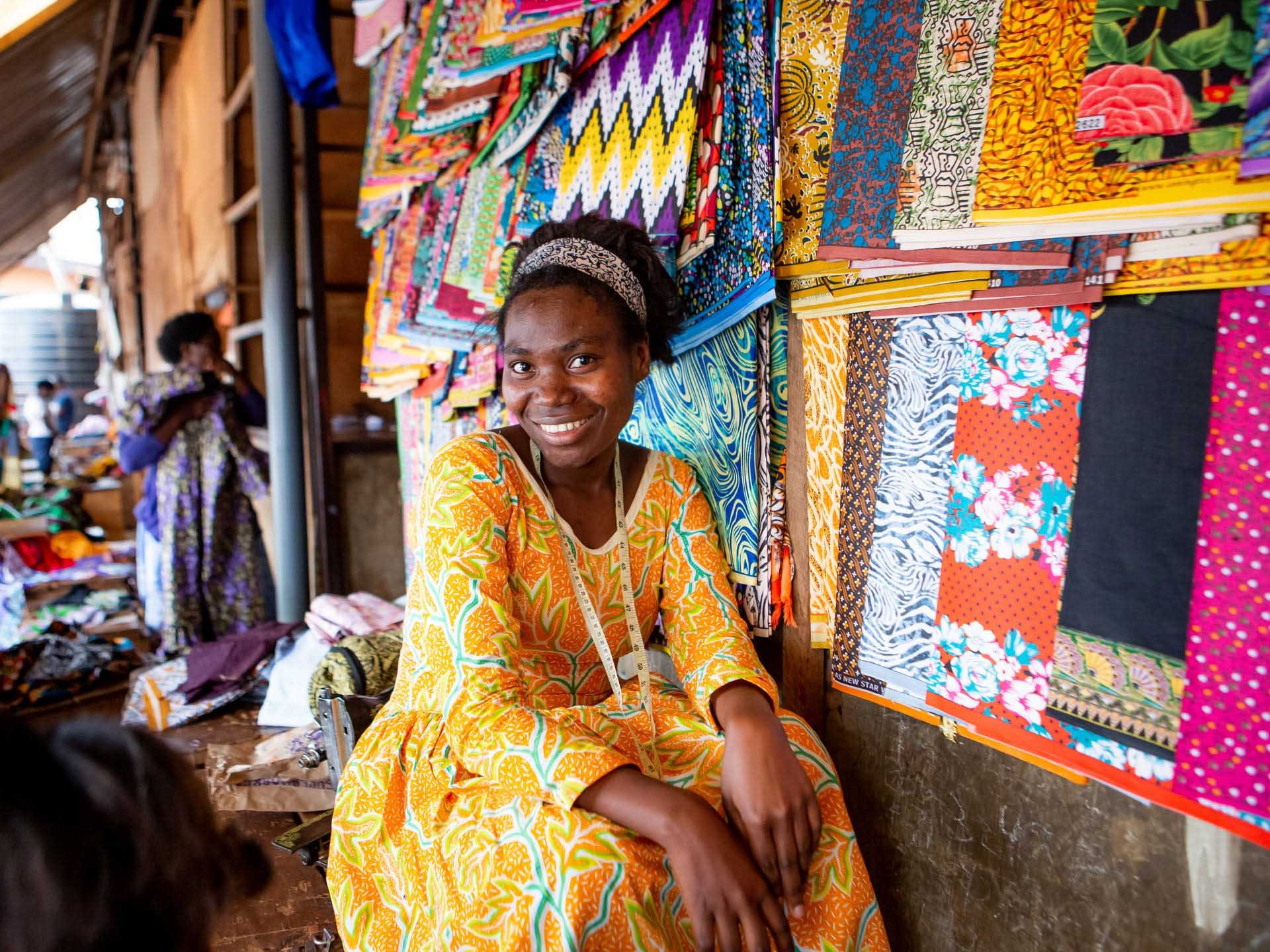
Home to 12 habituated gorilla groups, this Park is a favourite for gorilla trekking. As one of the cornerstones of protecting these endangered primates it’s also home to the late Diane Fossey’s Karisoke Research Center.
Gorillas aren’t the only animals to call the the lush forests home; visitors also have the opportunity to trek and spot golden monkeys, spotted hyenas, buffalo and more, not to mention over 170 bird species.
As the largest protected wetland in Central Africa, the Park serves as the last sanctuary for savannah-adapted species in Rwanda. Located in eastern Rwanda, Akagera spans over 1,120 square kilometres and boasts a diverse landscape of savannah plains, wetlands and rolling hills, providing a habitat for a wide array of flora and fauna.
Visitors to the Park can go on game drives, guided walks and boat safaris, where you might spot anything from elephants to lions and leopards. The park is also a birdwatcher’s dream, with over 500 bird species recorded, including the rare shoebill stork.
Kigali is known as one of the cleanest and most well-maintained cities in Africa, but that certainly doesn’t mean sterile. This dynamic capital city is a fusion of modernity and tradition with its vibrant streets, bustling markets and colourful shops and galleries reflecting the city’s rich history and resilient spirit.
From the moving Kigali Genocide Memorial to the lively local eateries serving up delicious Rwandan cuisine, every corner of Kigali tells a story and is not to be missed.



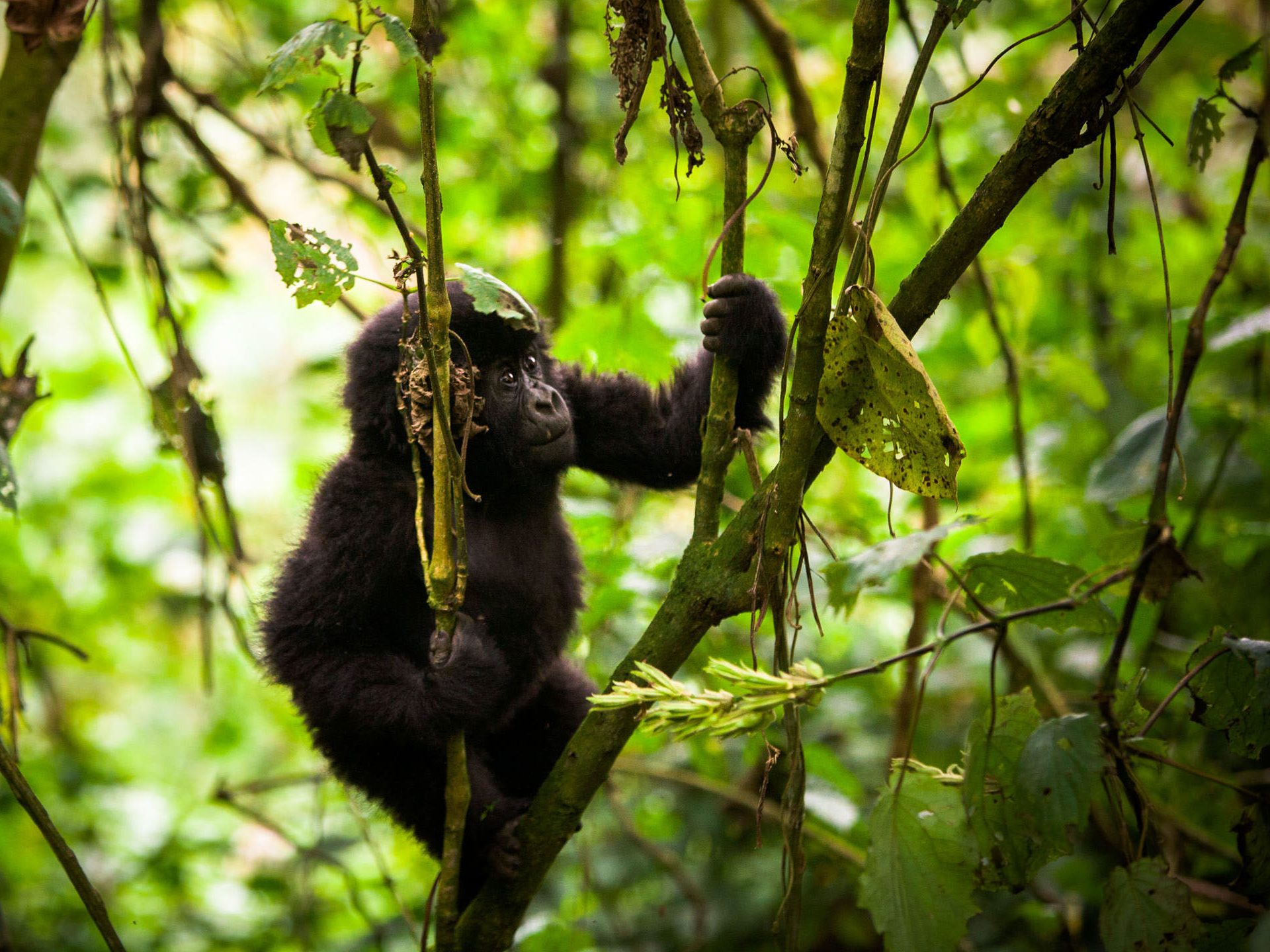
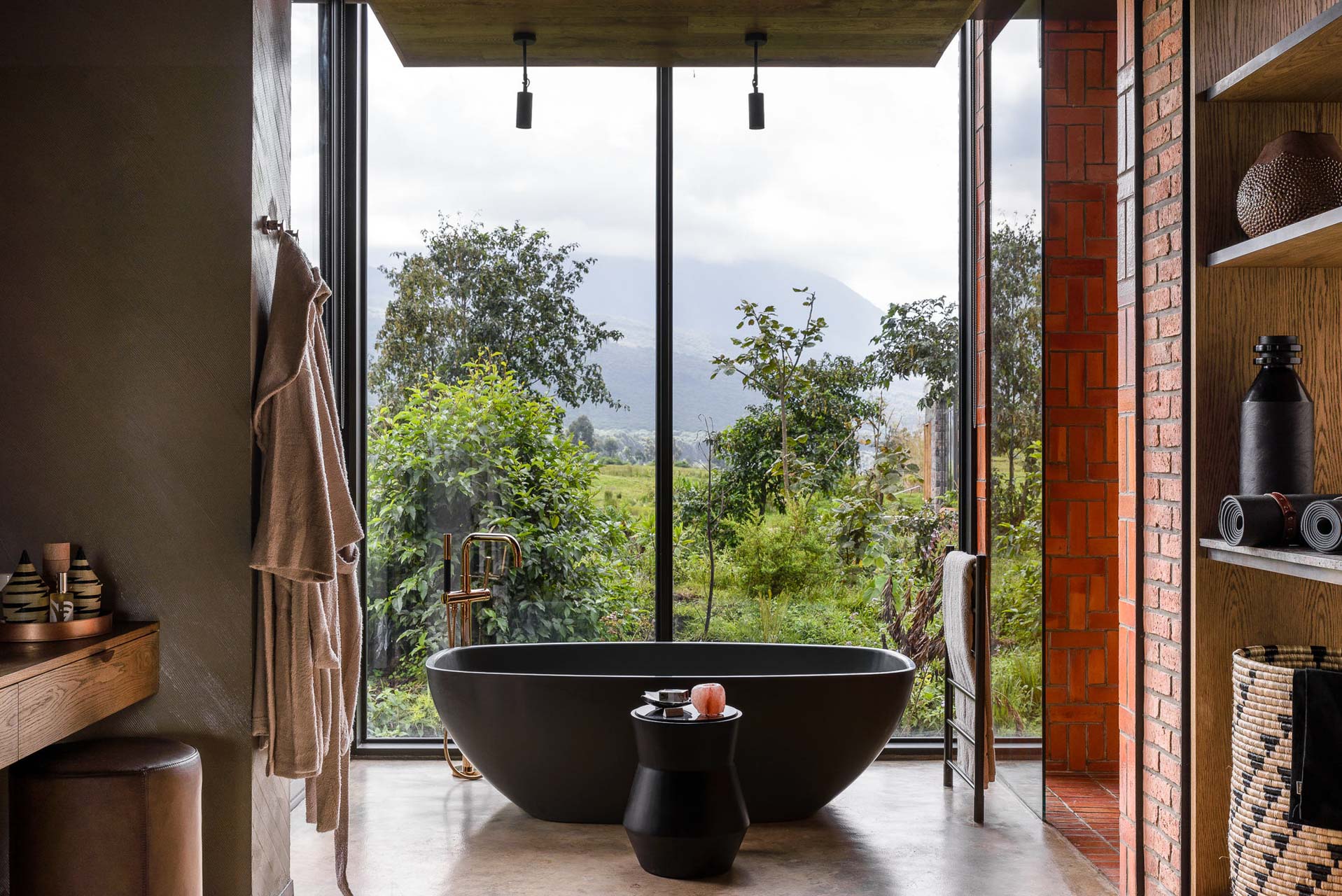
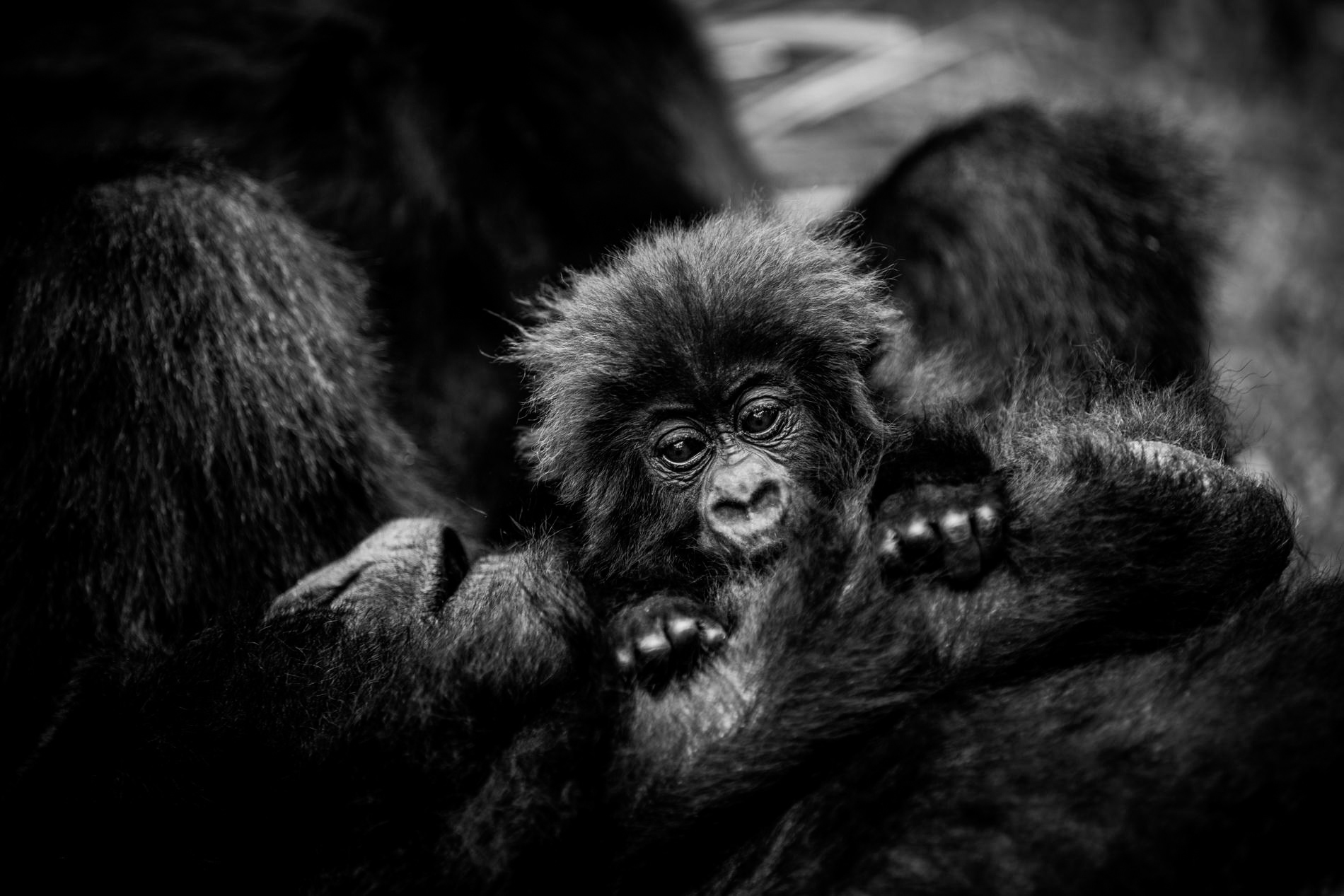
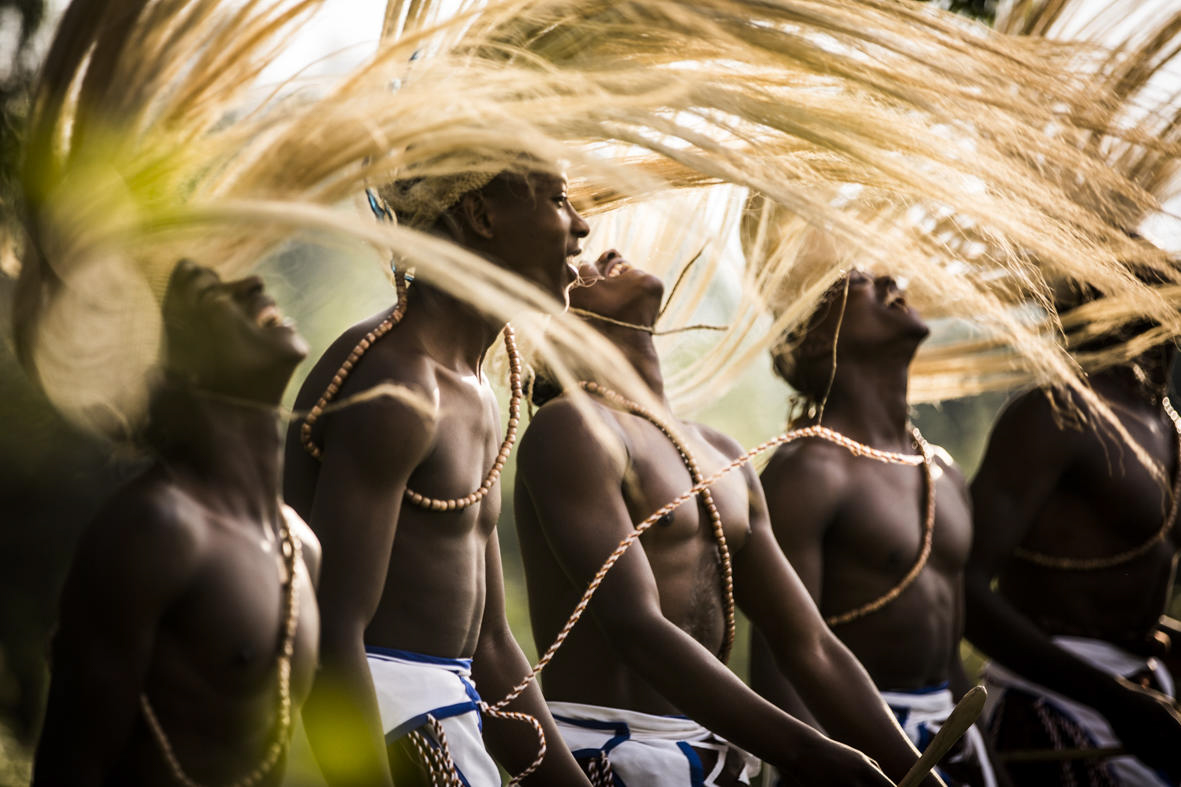
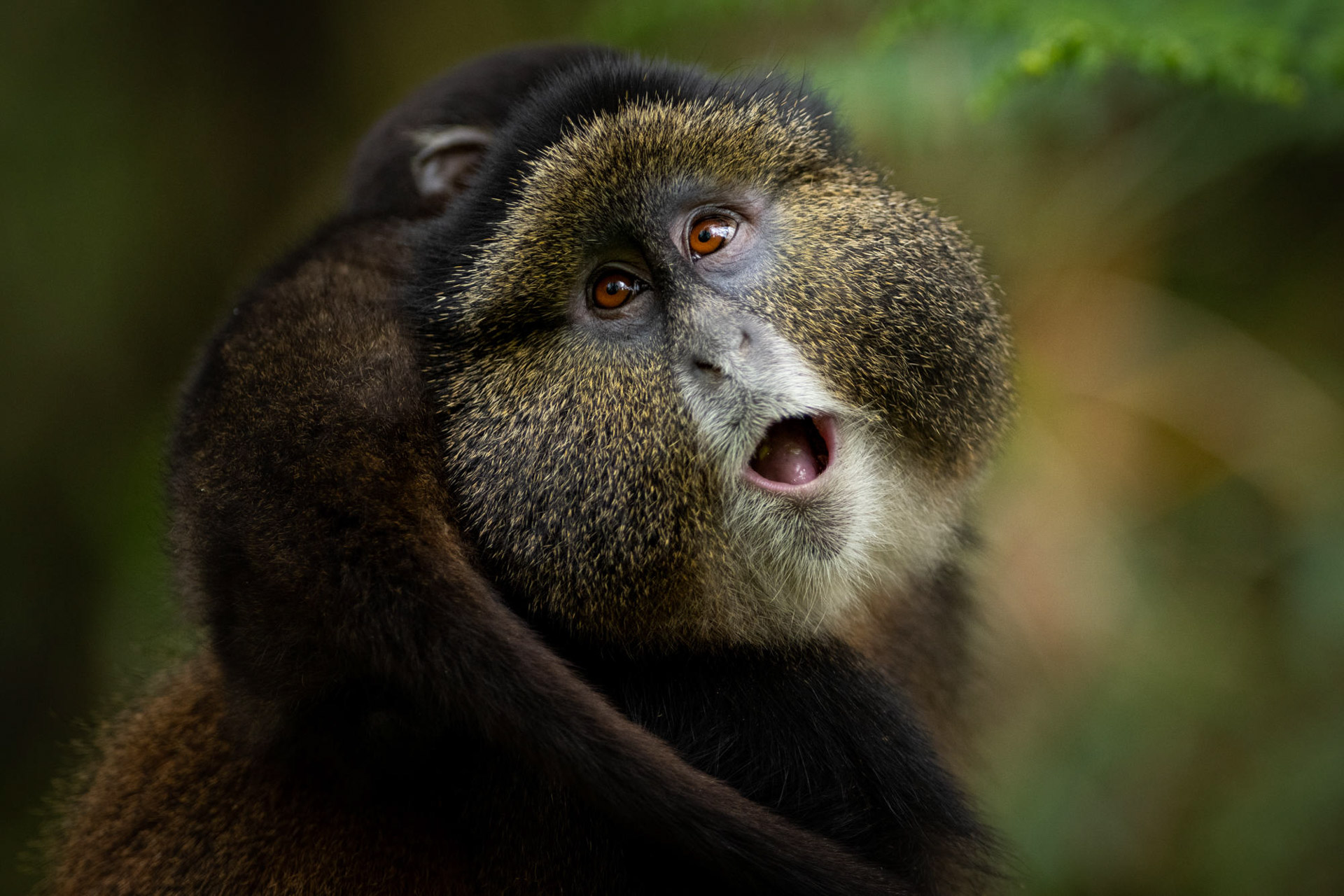
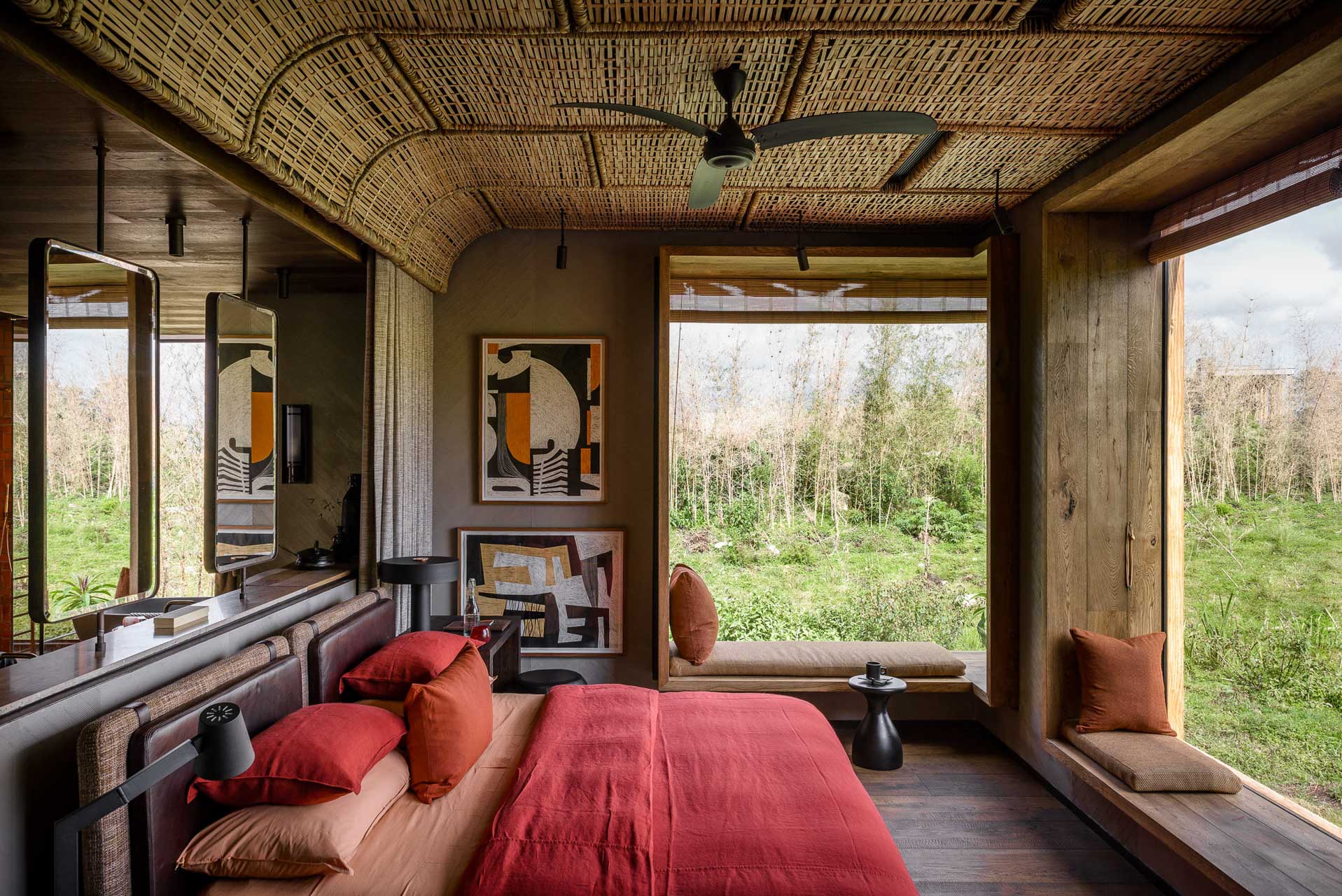
Uganda is home to approximately half of the global population of mountain gorillas. Beyond the once-in-a-lifetime encounter with gorillas, trekking in Uganda’s national parks provides an opportunity to immerse oneself in the region’s rich biodiversity. Most of the gorillas live in Bwindi Impenetrable Forest, which hosts a wide variety of life including over 300 bird species, plenty of animals (including the elusive forest elephant) and more plants than you would think possible. They say in Uganda that if you plant a walking stick in the ground, it will take root overnight.
With roughly half of the world’s mountain gorilla population living in Bwindi Impenetrable National Park, the ancient rainforest offers guests extraordinary gorilla trekking experiences. The reserve extends over a series of steep ridges in the Virunga Volcanoes mountain range and was declared a UNESCO World Heritage Site due to its ecological uniqueness and natural beauty.
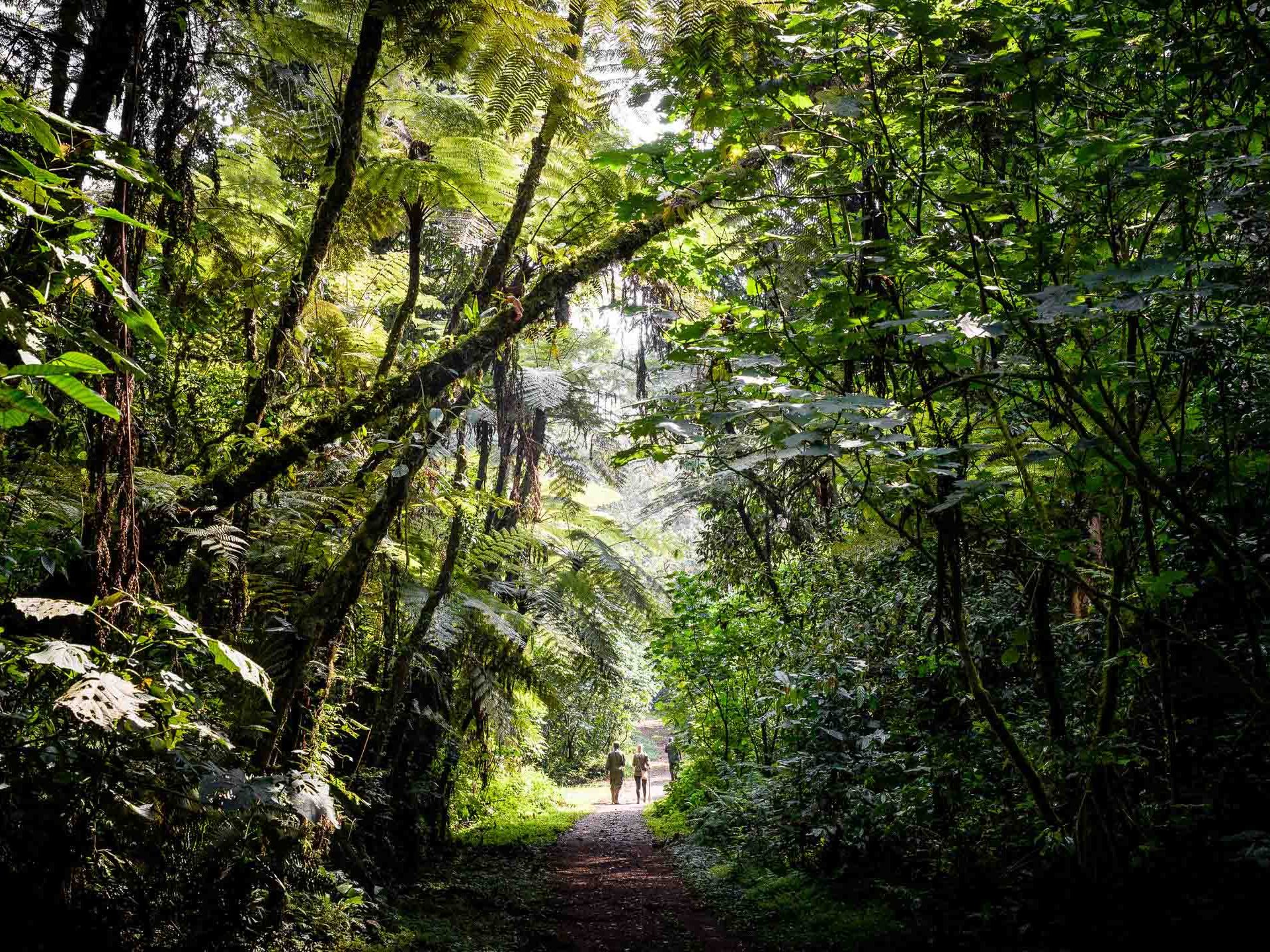
Spanning over 700 square kilometres, the Park is a sanctuary for a diverse array of wildlife, none more so exciting as the critically endangered chimpanzee. If the chimps aren’t for you, there are 12 other primate species here that you have the chance to see.
Being the lush tropical rainforest it is, the birdlife in the park is plentiful and the vegetation is astounding.
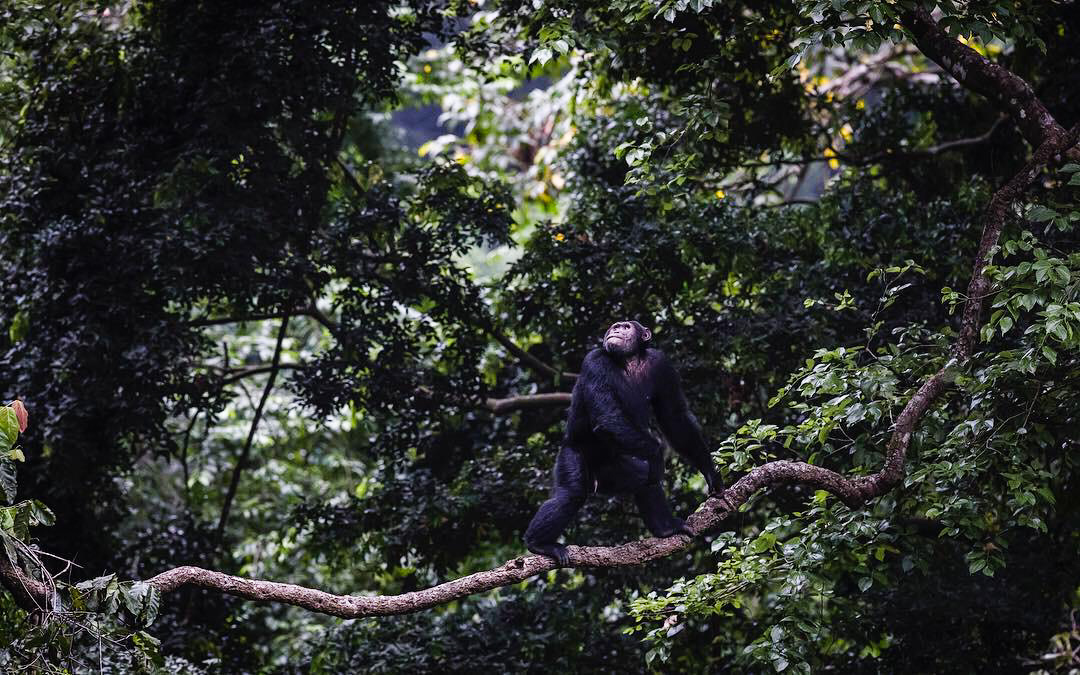
Named after Queen Elizabeth II and bordered by Lake Edward to the southwest and Lake George to the northeast, this park lives up to its royal name. Spanning approximately 1,978 square kilometres, the Park encompasses a stunning array of landscapes, including savannah, wetlands and forests, meaning it is rich in biodiversity.
Home to over 95 species of mammals and more than 600 species of birds. Among its flagship species are elephants, lions and leopards.
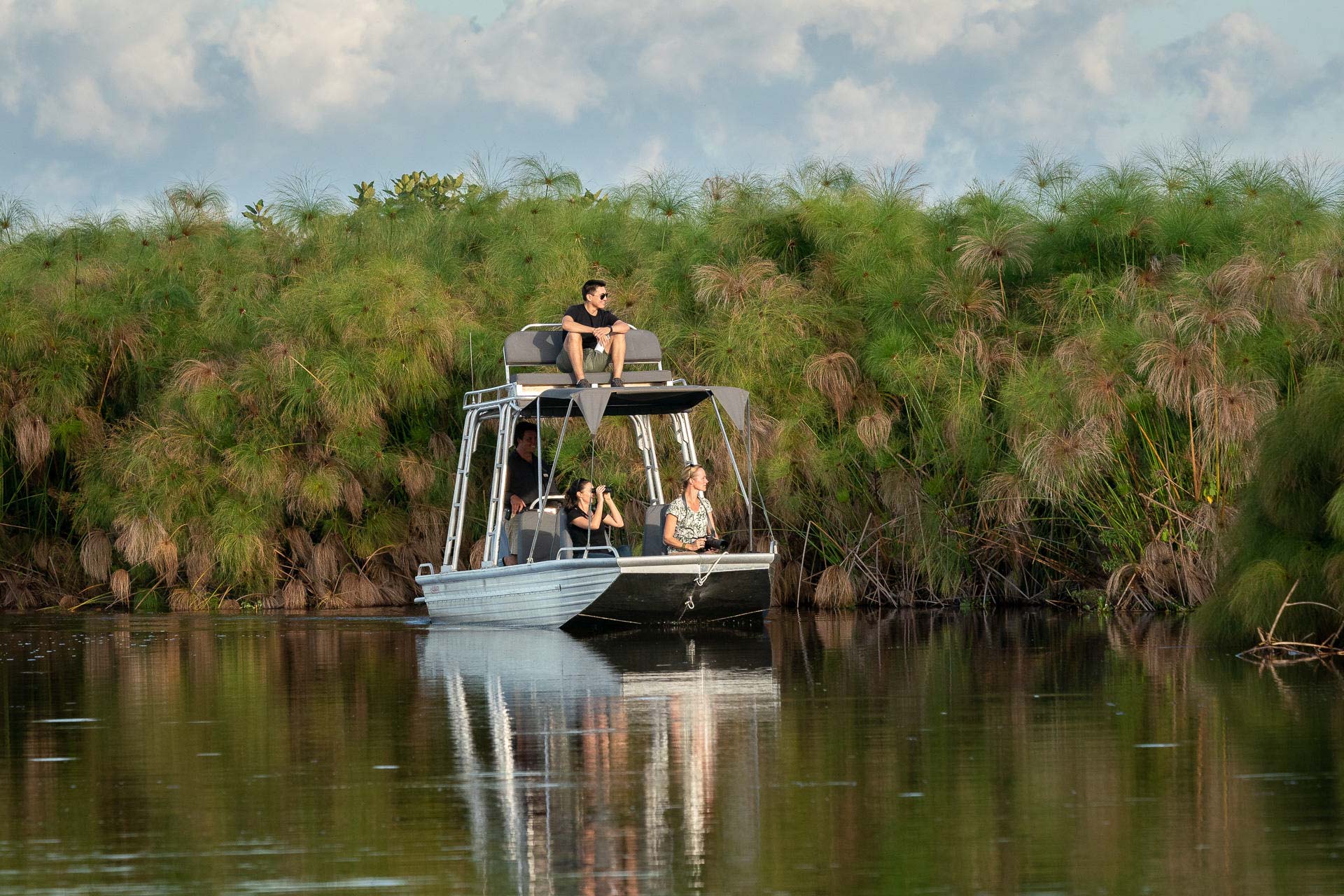
Entebbe is located on the northern shores of Lake Victoria in Uganda and is where Uganda’s main international airport is located. Stop in at one of the restaurants overlooking the lake for a Nile lager beer and take in the laidback Entebbe lifestyle.
For those slightly more adventurous, a boat trip on Lake Victoria is a wonderful way to spend the afternoon or morning. Cruise past some of Entebbe’s many fishermen and do some birding — you might be lucky enough to spot a shoebill.
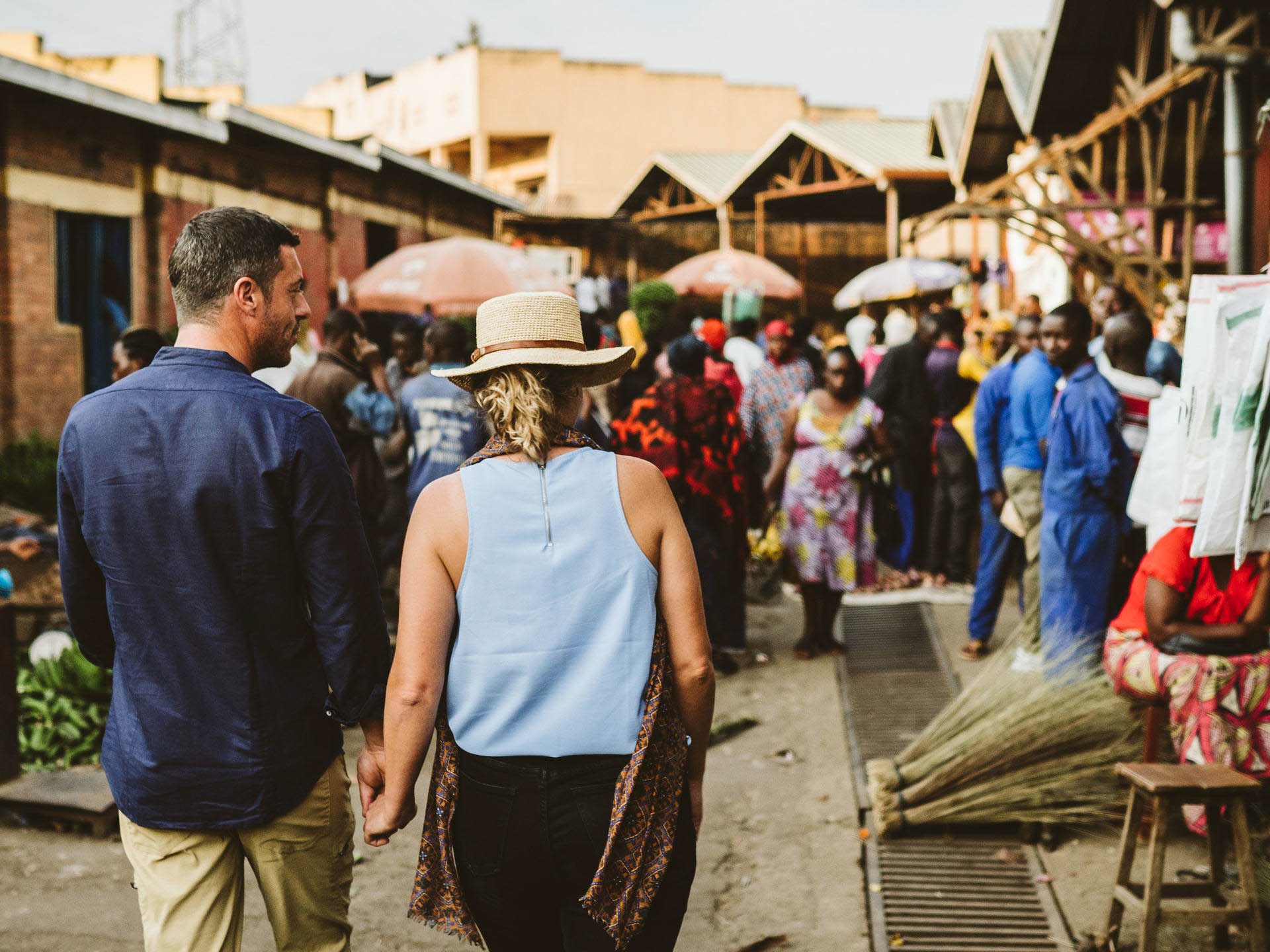
With roughly half of the world’s mountain gorilla population living in Bwindi Impenetrable National Park, the ancient rainforest offers guests extraordinary gorilla trekking experiences. The reserve extends over a series of steep ridges in the Virunga Volcanoes mountain range and was declared a UNESCO World Heritage Site due to its ecological uniqueness and natural beauty.
Spanning over 700 square kilometres, the Park is a sanctuary for a diverse array of wildlife, none more so exciting as the critically endangered chimpanzee. If the chimps aren’t for you, there are 12 other primate species here that you have the chance to see.
Being the lush tropical rainforest it is, the birdlife in the park is plentiful and the vegetation is astounding.
Named after Queen Elizabeth II and bordered by Lake Edward to the southwest and Lake George to the northeast, this park lives up to its royal name. Spanning approximately 1,978 square kilometres, the Park encompasses a stunning array of landscapes, including savannah, wetlands and forests, meaning it is rich in biodiversity.
Home to over 95 species of mammals and more than 600 species of birds. Among its flagship species are elephants, lions and leopards.
Entebbe is located on the northern shores of Lake Victoria in Uganda and is where Uganda’s main international airport is located. Stop in at one of the restaurants overlooking the lake for a Nile lager beer and take in the laidback Entebbe lifestyle.
For those slightly more adventurous, a boat trip on Lake Victoria is a wonderful way to spend the afternoon or morning. Cruise past some of Entebbe’s many fishermen and do some birding — you might be lucky enough to spot a shoebill.




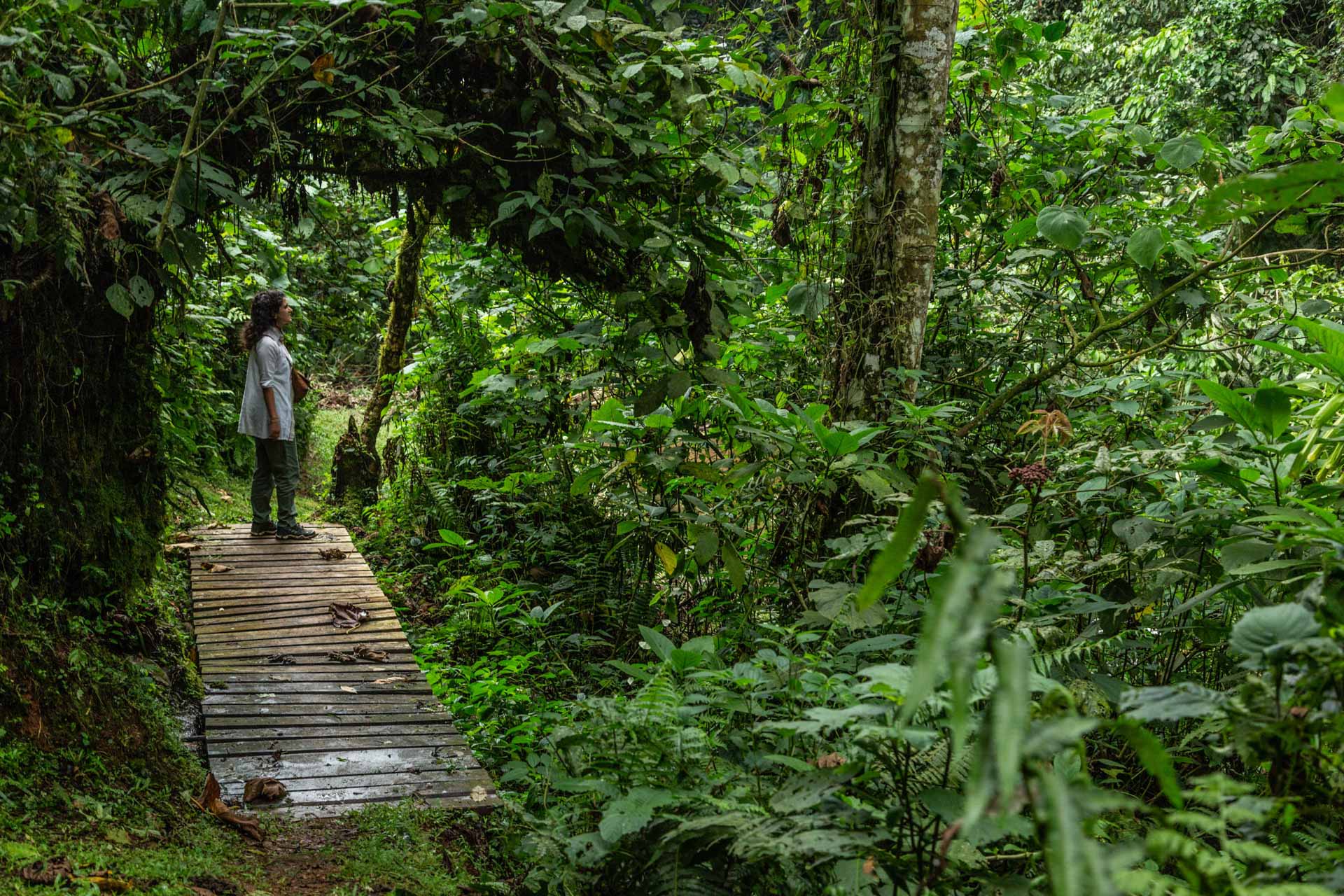
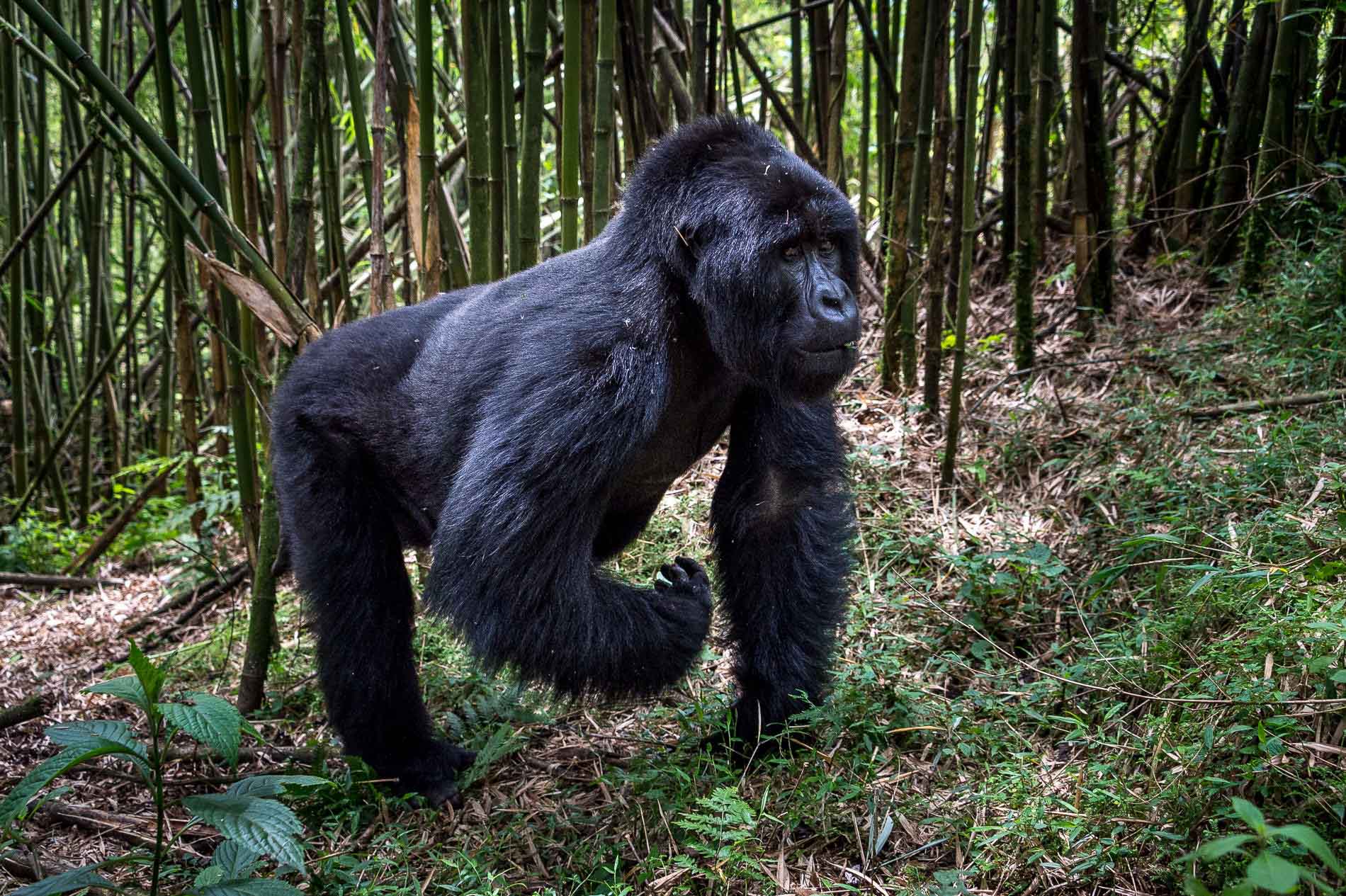
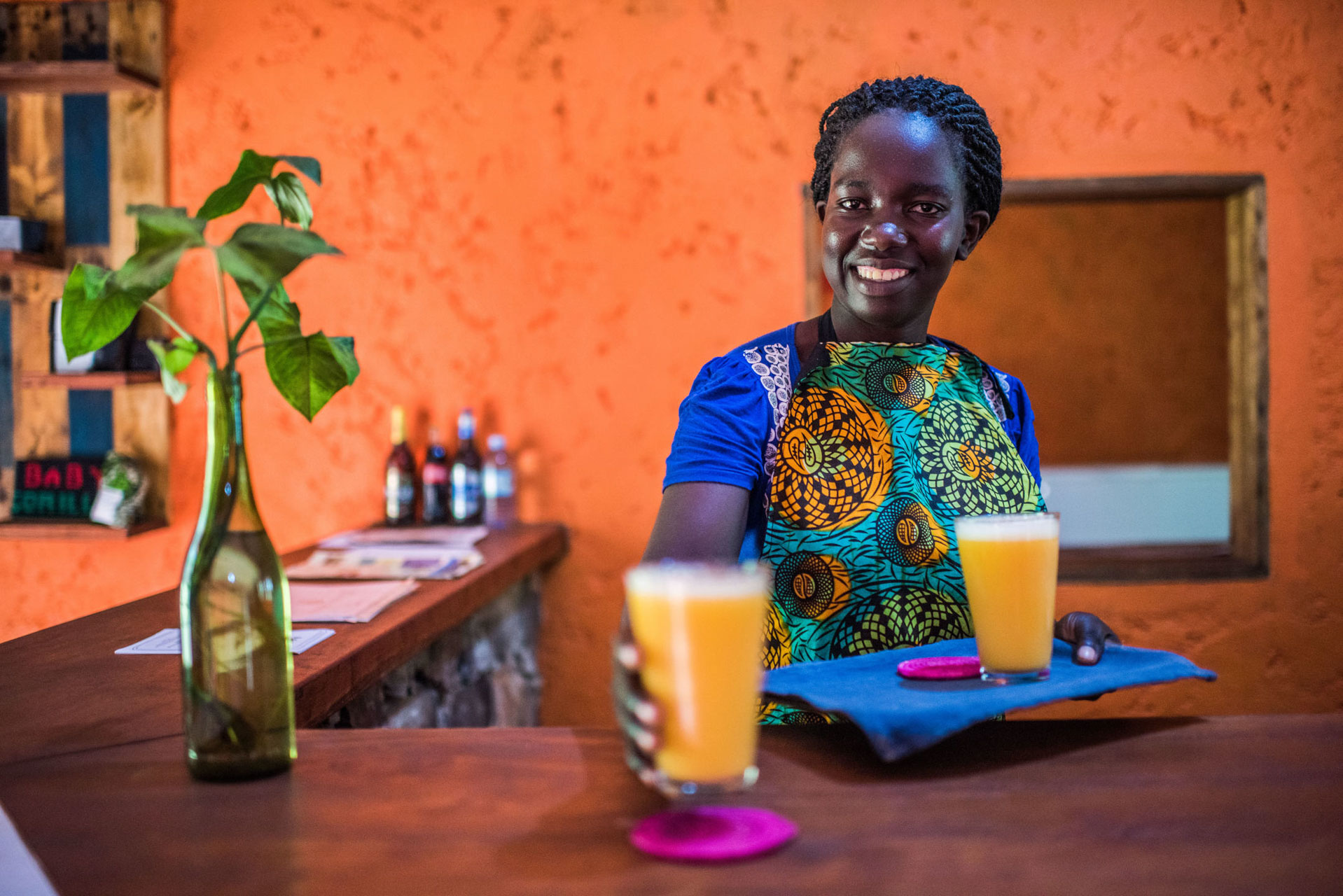
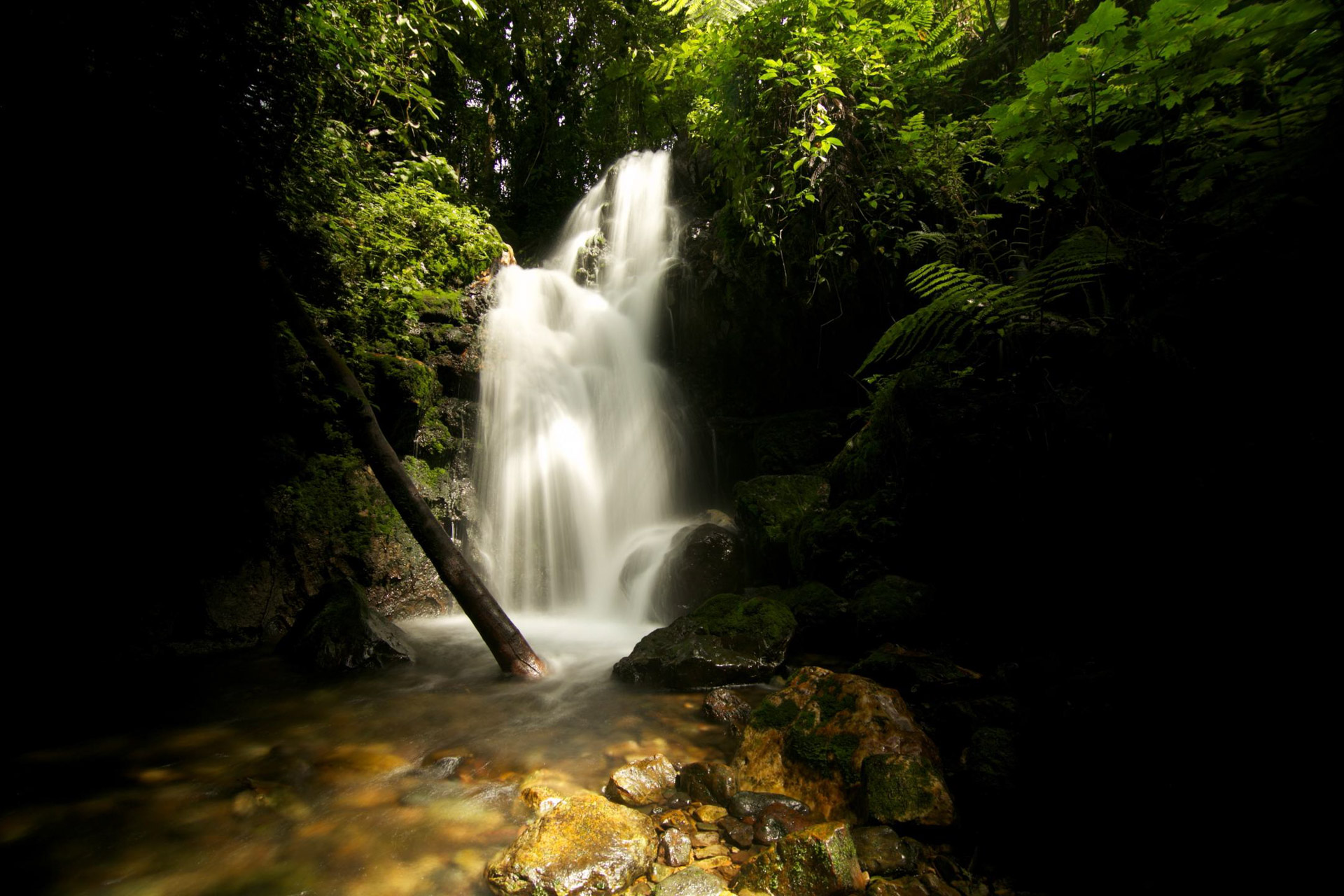
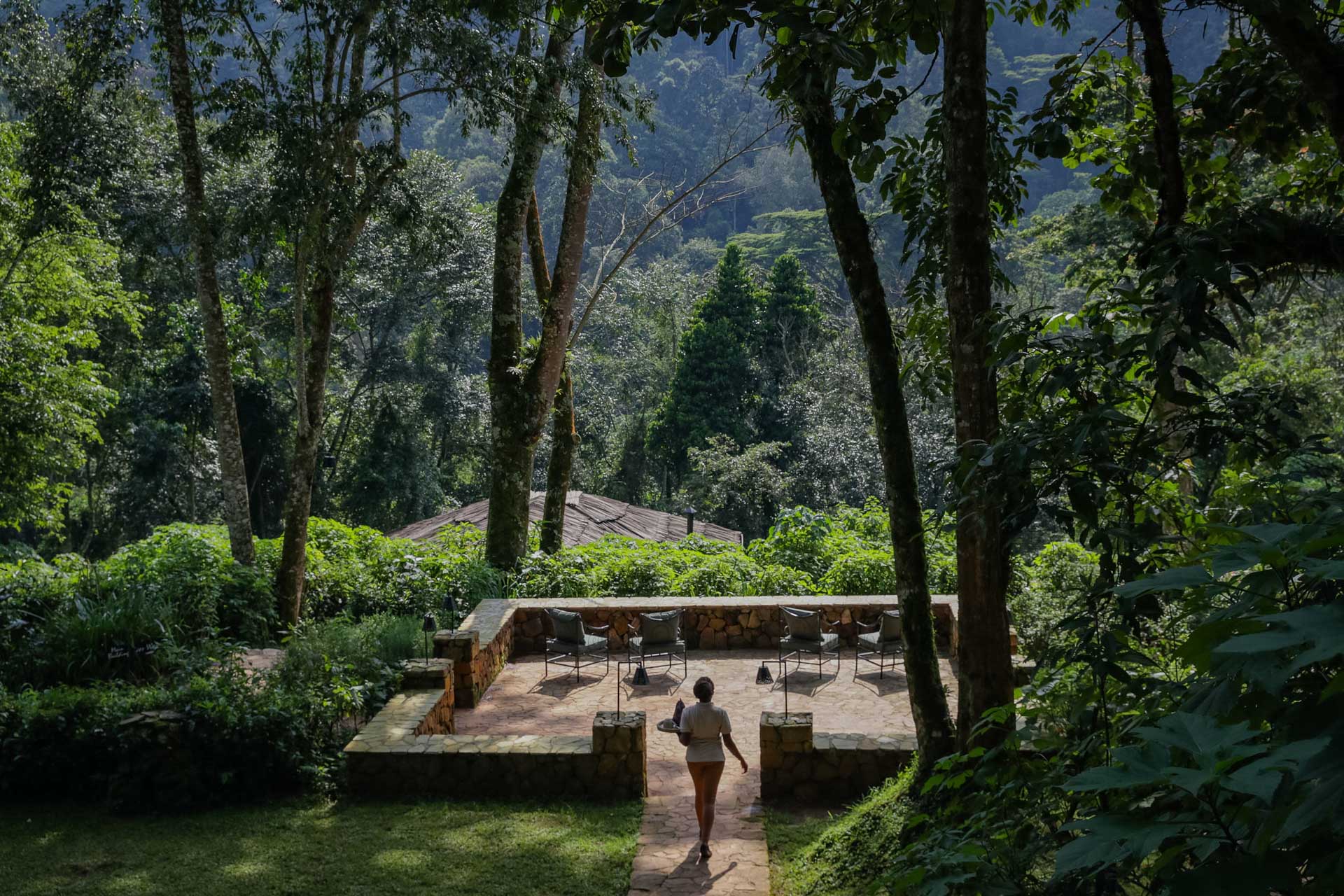
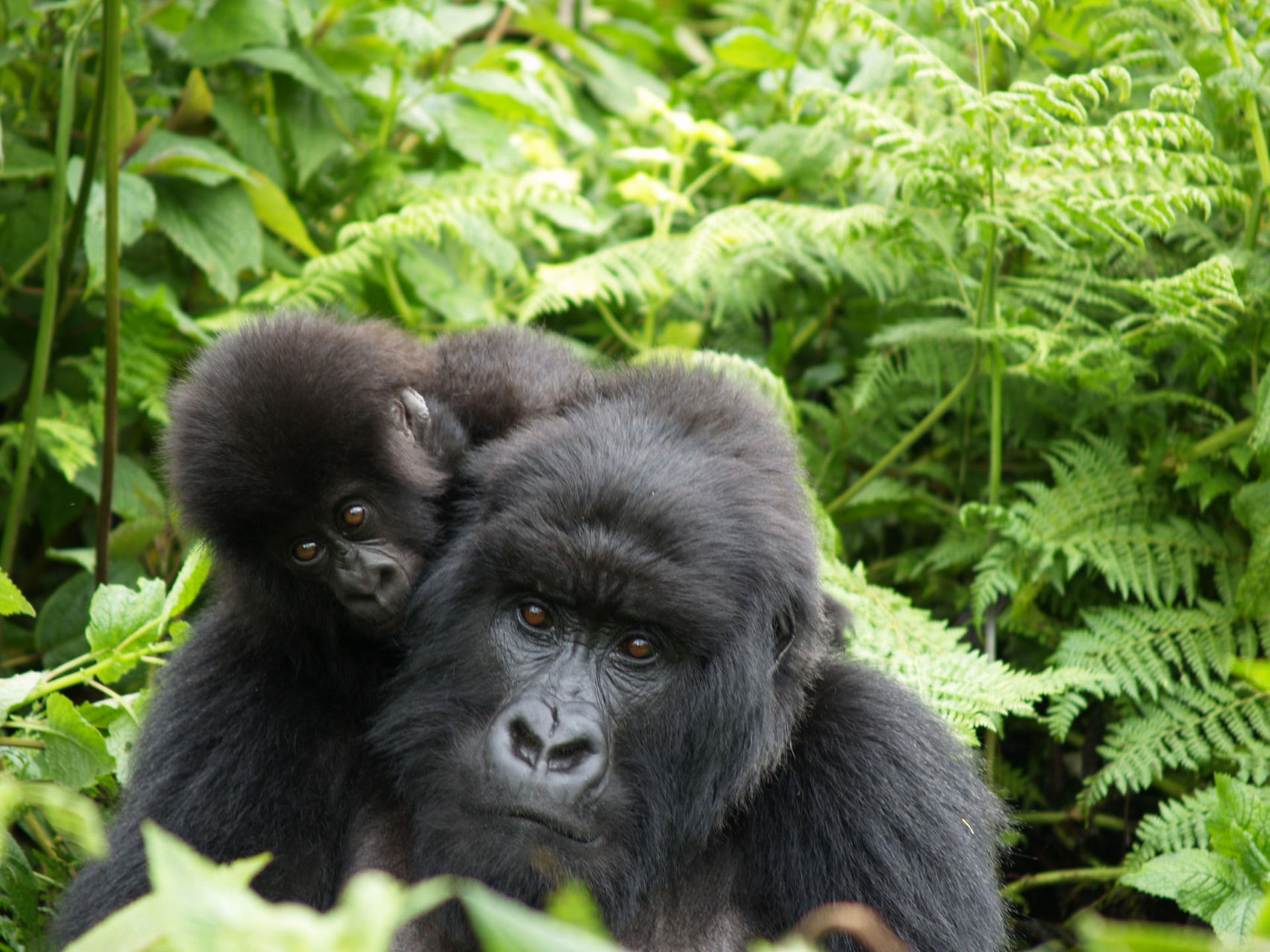
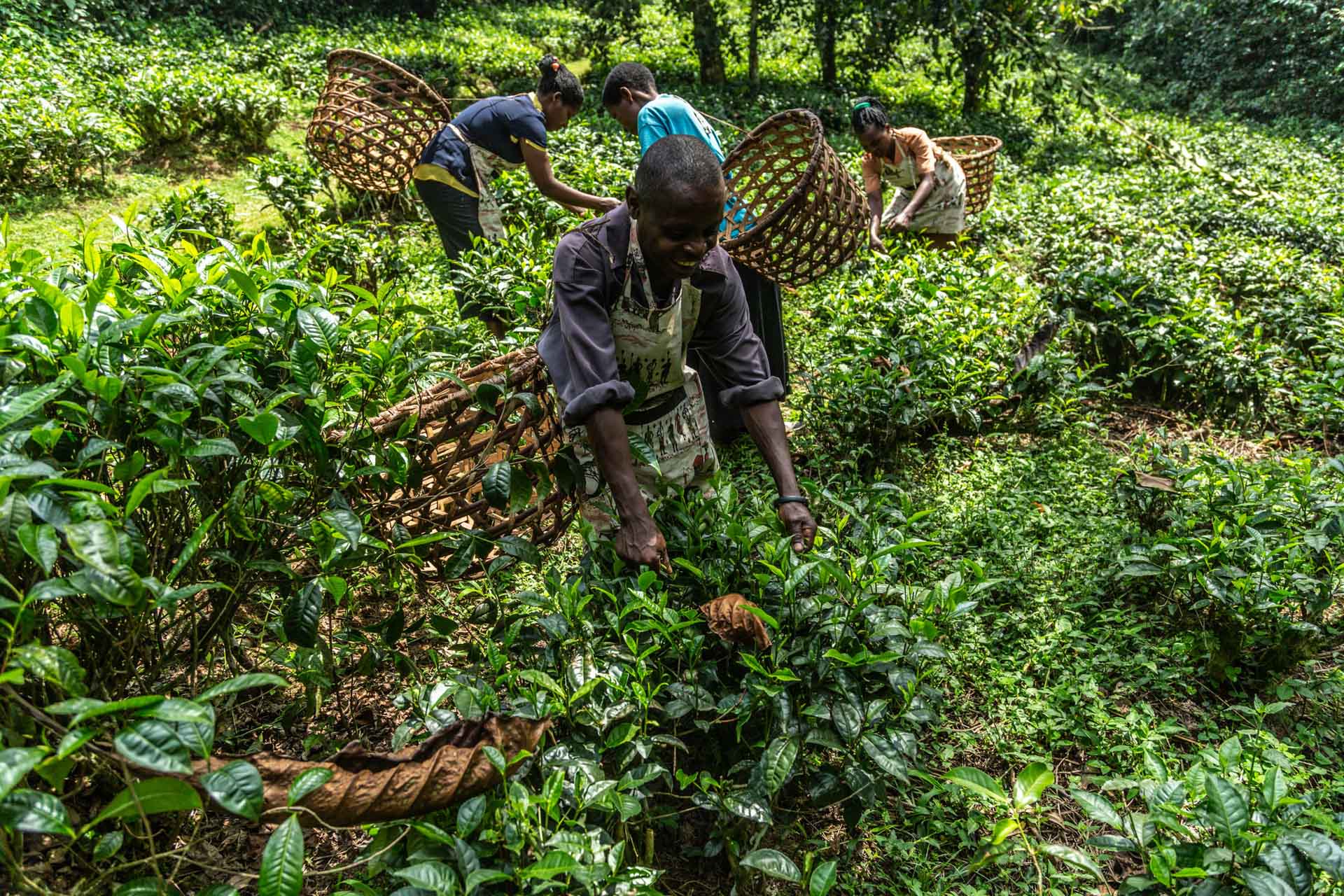
Rwanda and Uganda are both located in East Africa, and experience a tropical climate with moderate temperatures influenced by their high elevations. Both countries’ climates are generally mild and pleasant, making them suitable for travel throughout the year.
–Short Dry Season (December to February): Temperatures range from 20°C to 30°C (68°F to 86°F)
–Long Rainy Season (March to May): Temperatures average between 20°C and 25°C (68°F to 77°F)
–Long Dry Season (June to September/August): Temperatures range from 15°C to 28°C (59°F to 82°F)
–Short Rainy Season (October to December/November): Temperatures average between 20°C and 25°C (68°F to 77°F)
Angama Travel is happy to assist with excursions in Rwanda and Uganda. We have many lovely friends in each country who we trust to get you from A to B — and we will be just one call away.
There are no visa requirements for any traveller visiting Rwanda and Uganda. All foreign travellers, including infants and children, must have an approved Electronic Travel Authorisation (eTA) prior to travel.
The eTA must be applied for through the online portal for Rwanda and Uganda.
–An eTA fee is applicable for many nationalities including the US and UK
–An eTA is not required if you have a valid East African Tourist Visa (EATV) for travel to Kenya, Uganda and Rwanda
–A valid passport for at least six months from the date of entry, recommended with at least two blank pages (temporary passports will not be accepted)
–Passport holders from the following EAC countries are exempted from applying for an eTA: Burundi, Democratic Republic of Congo, Rwanda, South Sudan, Tanzania and Uganda
Please note that scheduled flights to Kigali and Entebbe carry a luggage restriction of 15kg per person in soft bags, including carry-ons. The acceptance of excess baggage is at the sole discretion of the airline but some offer the option to purchase an additional bag. Not to worry though as many of the properties we recommend provide guests with all the essential gear for gorilla trekking.
Many countries require travellers to have a Yellow Fever certificate prior to returning from a visit to East Africa, including children from the age of nine months.
Malaria is prevalent across East Africa – Rwanda and Uganda are no exception. For updated advice, we recommend consulting the WHO’s international travel & health department, and checking their list of specific country requirements. We also suggest that you speak to a medical professional for the most up-to-date advice prior to travel.
The local currency for Rwanda is Rwanda Francs (RWF) and Ugandan Shilling (UGX) for Uganda. USD $ are widely accepted, though only those issued after 2006 are accepted. Credit cards are accepted by most lodges, hotels and restaurants (Visa & MasterCard), and ATMs are widely available in Entebbe and in Kigali. We recommend travelling with USD $ in cash, in multiple denominations.
Gratuities are entirely at guests’ discretion and are not included in Angama Travel quotes. There is no hard and fast rule, and recommendations vary from property to property — you’re welcome to discuss this with your Travel Planner. Please note that there are always more guides and trackers on gorilla treks than you expect; we strongly advise you to engage a porter for trekking as they are extremely helpful and gracious and very appreciative of the opportunity to earn some dollars.
Laundry can be done at most lodges, so we recommend packing light and making use of this service.
Some recommended items include:
–Comfortable cotton clothing — clothes may get muddy, especially in the winter months, so suggest wearing old clothes
–A jacket and/or warm fleece, layers are always good as it can be cold at altitude, don’t forget a light raincoat
–Both long and short sleeve shirts, shorts and trousers
–Extra pair of walking shoes or trainers
–Comfortable, durable hiking boots
–Sunhat, sunglasses, sun block, lip balm
–Leather (gardening) gloves (for stinging nettles in the park)
–Medium-to-large zip-lock bags (great for waterproofing)
–Daypack
–Please note: no bright colours, white or camouflage designs are allowed on the gorilla trek
While each property recommended by Angama Travel has undergone thorough safety inspections, we still recommend you use the safe in your hotel room and keep valuables close to you at all times when exploring the city.
We recommend purchasing travel insurance at the time of booking to ensure you are covered for the unexpected. The insurance should include coverage for trip delay, trip interruption, trip cancellation, emergency medical and emergency evacuation/repatriation, and baggage delay and loss.
The experienced Angama Travel team is here to create an itinerary tailored to your dream holiday and destinations. They are ready to assist you during every step of your journey, from the exciting process of itinerary planning to support throughout your trip and keep in touch once you have returned home.
